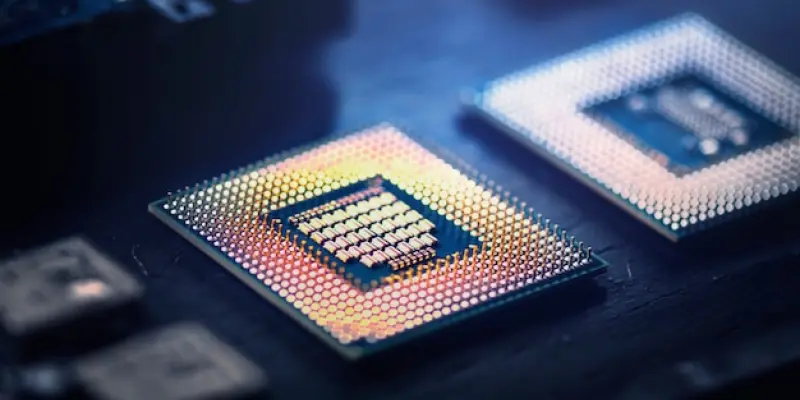The gaming industry is buzzing with excitement about the latest addition to HP’s gaming lineup. The upcoming HP OMEN Gaming PC, featuring the cutting-edge GeForce RTX 5060 Ti GPU, promises to deliver unprecedented performance and graphics capabilities to enthusiastic gamers worldwide. With the official launch set for April 16th, retailers like Best Buy Canada have already listed these GPUs, igniting anticipation and speculation about how they will perform in real-world gaming scenarios.
Advanced GPU Capabilities and Specifications
The GeForce RTX 5060 Ti is poised to set new standards in the gaming world, being available in both 8 GB and 16 GB editions to cater to varying needs and budgets. The 8 GB version is expected to be more than adequate for 1080p gaming, ensuring smooth and lag-free gameplay. On the other hand, the 16 GB version aims to handle more demanding modern titles at 1440p resolution, potentially offering gamers an immersive and visually stunning experience. Core specifications of the RTX 5060 Ti include 4608 CUDA Cores and GDDR7 VRAM, marking a significant leap from its predecessors. Notably, the GPU’s 128-bit Memory Bus and 180W TDP further underscore its power and efficiency.
Enthusiasts will be delighted to know that HP’s new OMEN 16L gaming desktop is set to incorporate these powerful GPUs. This desktop offers configurations based on either AMD Ryzen 7 8700F or Intel Core i7 14700F processors. One notable configuration listed on Best Buy Canada includes a 16 GB RTX 5060 Ti coupled with a Ryzen 7 8700F CPU, 16 GB RAM, and a 1 TB SSD, priced at $1799.99. While the exact availability date for this configuration remains unspecified, its listing has already generated significant interest within the gaming community.
Performance and Pricing
Despite the excitement, there are noticeable elements of surprise in the hardware choices for this new gaming PC. Specifically, the inclusion of the AMD Ryzen 7 8700F processor has raised some eyebrows, given the availability of the newer Ryzen 9000 series. Nevertheless, the decision appears to be guided by compatibility and performance balance, aligning the processor with the mid-range RTX 5060 Ti GPU to ensure optimal gaming performance. The OMEN Gaming PC’s configuration aims to provide a harmonious balance between performance and cost, though opinions vary on whether it justifies its price tag.
As with many OEM pre-built systems, the HP OMEN tends to be on the pricier side compared to custom-built rigs from individually sourced parts. This is particularly true when factoring in the latest GPUs and high-end processors, which can often command a premium. Nonetheless, the HP OMEN Gaming PC’s appeal lies in its convenience, warranty, and brand assurance, which are compelling factors for many buyers. For gamers who prefer not to delve into the complexities of assembling a custom gaming rig, the HP OMEN provides a ready-made solution with robust performance credentials.
The Gaming Industry Awaits
The gaming world is abuzz with excitement as HP is set to unleash its latest powerhouse: the HP OMEN Gaming PC, equipped with the state-of-the-art GeForce RTX 5060 Ti GPU. This highly anticipated release promises to elevate gaming experiences to new heights with unparalleled performance and stunning graphics, making it a must-have for avid gamers around the globe. The official launch date is slated for April 16th, but the anticipation has already reached a fever pitch. Retailers like Best Buy Canada have already listed the GPUs, sparking discussions and predictions within the gaming community about how these new GPUs will fare in actual gaming environments. Many are eager to see if the HP OMEN Gaming PC will live up to the hype and set a new standard in the industry, possibly changing the gaming landscape with its advanced technology and capabilities. Expectations are running high, as gamers around the world prepare for what could be a game-changing addition to their gaming setup.

